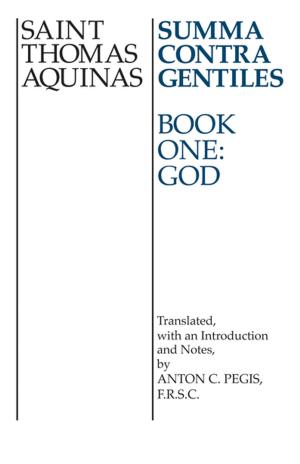Scandal Work
James Joyce, the New Journalism, and the Home Rule Newspaper Wars
Nonfiction, History, Ireland, Fiction & Literature, Literary Theory & Criticism, British, Modern, 20th Century| Author: | Margot Gayle Backus | ISBN: | 9780268158040 |
| Publisher: | University of Notre Dame Press | Publication: | October 21, 2013 |
| Imprint: | University of Notre Dame Press | Language: | English |
| Author: | Margot Gayle Backus |
| ISBN: | 9780268158040 |
| Publisher: | University of Notre Dame Press |
| Publication: | October 21, 2013 |
| Imprint: | University of Notre Dame Press |
| Language: | English |
In Scandal Work: James Joyce, the New Journalism, and the Home Rule Newspaper Wars, Margot Gayle Backus charts the rise of the newspaper sex scandal across the fin de siècle British archipelago and explores its impact on the work of James Joyce, a towering figure of literary modernism.
Based largely on archival research, the first three chapters trace the legal, social, and economic forces that fueled an upsurge in sex scandal over the course of the Irish Home Rule debates during James Joyce’s childhood. The remaining chapters examine Joyce’s use of scandal in his work throughout his career, beginning with his earliest known poem, “Et Tu, Healy,” written when he was nine years old to express outrage over the politically disastrous Parnell scandal.
Backus’s readings of Joyce’s essays in a Trieste newspaper, the Dubliners short stories, Portrait of the Artist, and Ulysses show Joyce’s increasingly intricate employment of scandal conventions, ingeniously twisted so as to disable scandal’s reifying effects. Scandal Work pursues a sequence of politically motivated sex scandals, which it derives from Joyce's work. It situates Joyce within an alternative history of the New Journalism’s emergence in response to the Irish Land Wars and the Home Rule debates, from the Phoenix Park murders and the first Dublin Castle scandal to “The Maiden Tribute of Modern Babylon” and the Oscar Wilde scandal. Her voluminous scholarship encompasses historical materials on Victorian and early twentieth-century sex scandals, Irish politics, and newspaper evolution as well as providing significant new readings of Joyce’s texts.
In Scandal Work: James Joyce, the New Journalism, and the Home Rule Newspaper Wars, Margot Gayle Backus charts the rise of the newspaper sex scandal across the fin de siècle British archipelago and explores its impact on the work of James Joyce, a towering figure of literary modernism.
Based largely on archival research, the first three chapters trace the legal, social, and economic forces that fueled an upsurge in sex scandal over the course of the Irish Home Rule debates during James Joyce’s childhood. The remaining chapters examine Joyce’s use of scandal in his work throughout his career, beginning with his earliest known poem, “Et Tu, Healy,” written when he was nine years old to express outrage over the politically disastrous Parnell scandal.
Backus’s readings of Joyce’s essays in a Trieste newspaper, the Dubliners short stories, Portrait of the Artist, and Ulysses show Joyce’s increasingly intricate employment of scandal conventions, ingeniously twisted so as to disable scandal’s reifying effects. Scandal Work pursues a sequence of politically motivated sex scandals, which it derives from Joyce's work. It situates Joyce within an alternative history of the New Journalism’s emergence in response to the Irish Land Wars and the Home Rule debates, from the Phoenix Park murders and the first Dublin Castle scandal to “The Maiden Tribute of Modern Babylon” and the Oscar Wilde scandal. Her voluminous scholarship encompasses historical materials on Victorian and early twentieth-century sex scandals, Irish politics, and newspaper evolution as well as providing significant new readings of Joyce’s texts.















